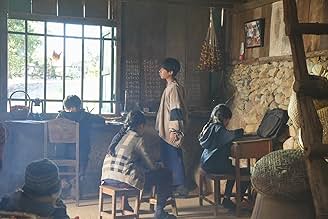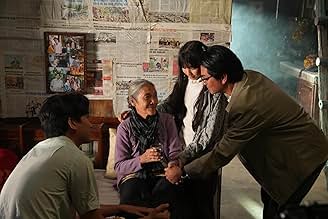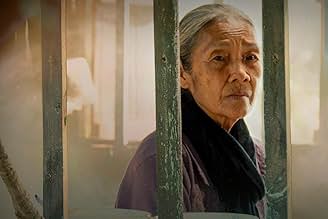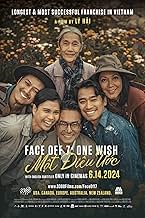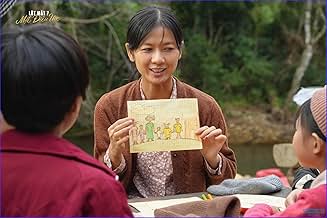The title of this film in no way prepared me for what I was about to see! A charming old grandmother "Madame Hai" (Thanh Hien) is content tending her flowers at her rural home when she has a bit of a mishap that puts her leg in plaster. Even though she is surrounded by helpful neighbours, it's clear the she cannot look after herself, so children have to take it in turns whilst she recovers. Her daughter, with whom she lives, must contend with a very ill girl of her own, so it falls to the other four siblings to argue about who will make some sacrifices and compromise their own busy schedules to accommodate the old lady. First it's the wealthy brother whose job is on the line and whose daughter is a bit prone to fighting at school; the second is an hen-pecked fisherman with a kindly young daughter and a sagely old in-law. Then it's the turn of the daughter (my favourite scenario) who works with her husband on a flower farm and who tries to convince her mother that they live in a big house with a pool - but do they really? Finally, a young son with an expectant wife take their turn. The old lady is embarrassed to be a burden, but each story serves as a sort of mini-parable with a message about familial values, priorities and the wisdom of age. The episodes are quite good fun, but once they are over the story rather loses it's way as the grannie sells up and absconds leaving her children to worry and panic. That's hardly plausible, nor, really, is much of the last half hour or so as the story loses much of its impetus, humour and focus. It's got a sort of nondescript television style score too that doesn't really help it along either and that's a shame as the family dramas are quite funny and engaging. It is way too long but Thanh Hien's gentle personification of an old lady whose not without her wits makes for a decent template for the first half of the drama. I don't watch much Vietnamese cinema, but maybe presenting stories depicting their own rich culture might work better if they leave out the attempts to appeal so overtly to a Western audience?


